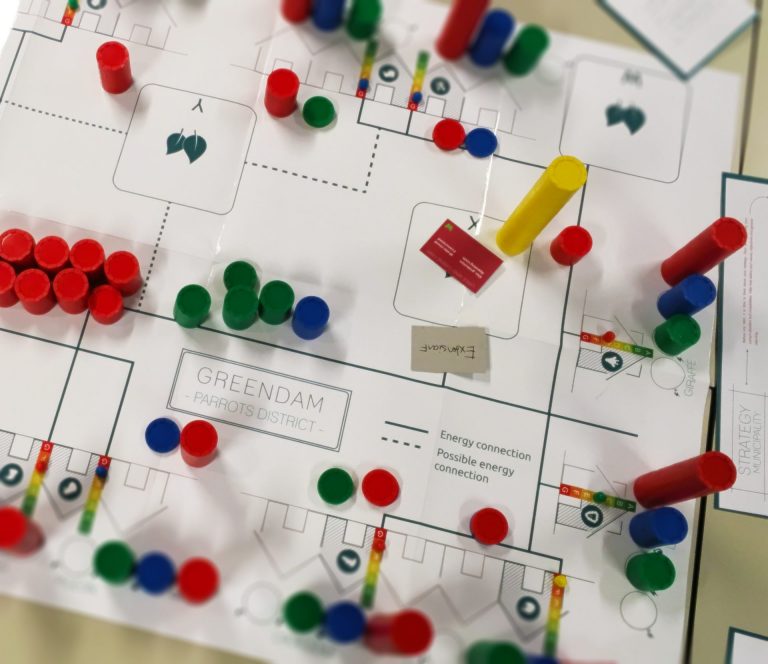Role-playing game to facilitate energy transition decision-making on city level
Go2Zero provides a better understanding of the challenges of energy transition in cities by facilitating a space to explore different strategies to tackle them. In this multi-player game, different roles need to take actions to reduce energy consumption, increase sustainable production and create CO2 free districts. Some of the stakeholders represented in this decision-making process are governments, utilities, residents or housing corporations. The game lets you experience the consequences of individual and collective decisions and also explore the interdependencies between different stakeholders. By experiencing these consequences in a board game setting, stakeholders may be able to take better decisions in real life.

